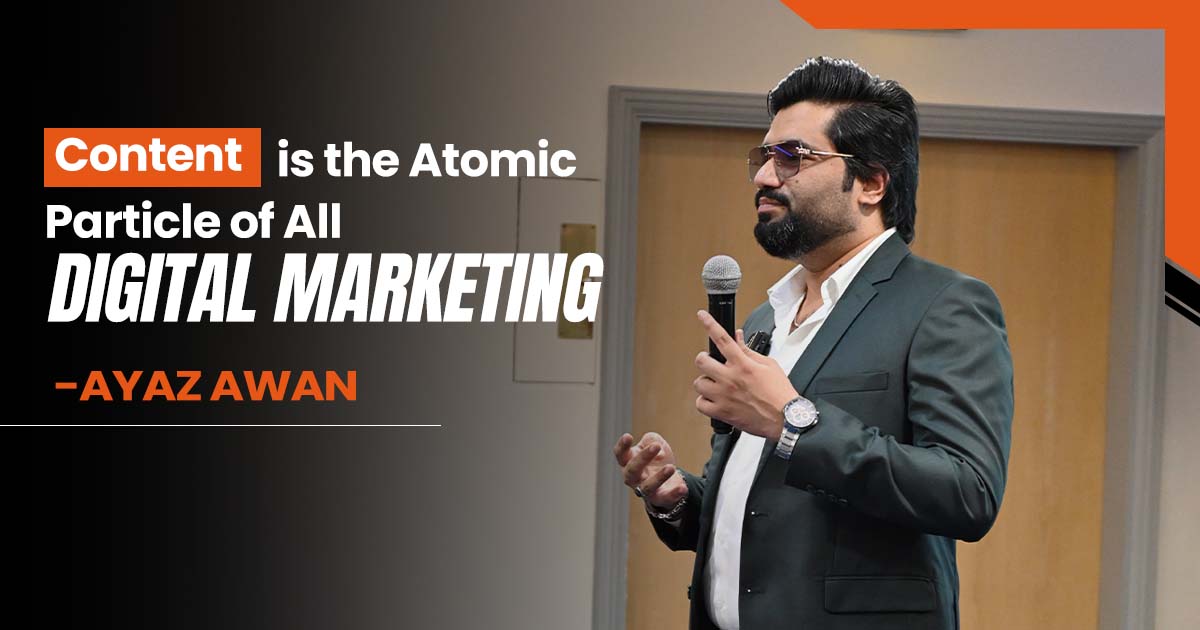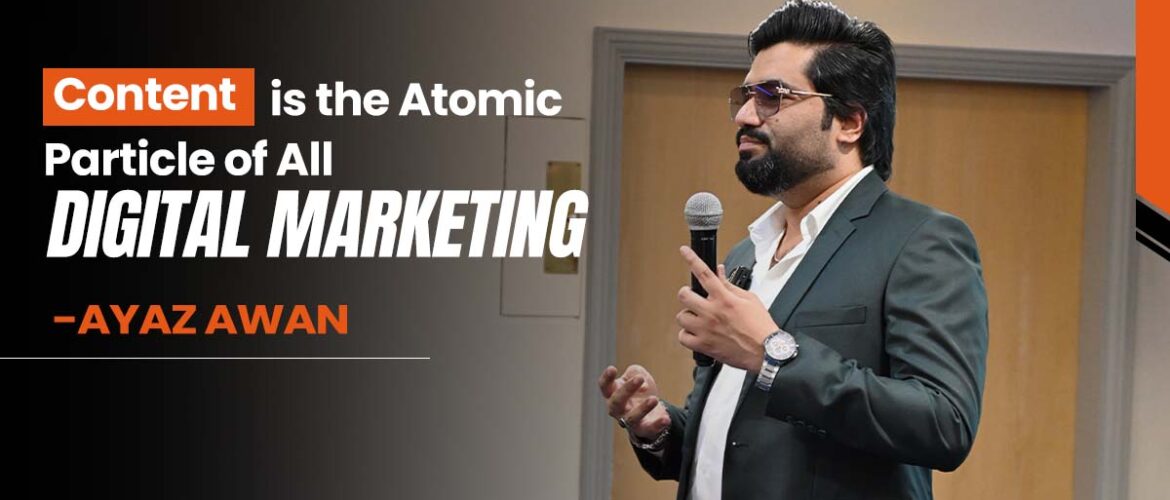
Content, the backbone of digital marketing- a broad field that includes all marketing efforts using an electronic device or the internet- forms the foundation of this process. Content, in all its forms, engages the audience, delivers information, and gets consumers to act. Ayaz Awan, one of the most well-known digital marketing experts, underscores the fact that content plays a vital role in reaching the target audience by connecting brands effectively and efficiently.
Ayaz Awan’s approach underlines content as a tool and as the fundamental particle of digital marketing, similar to atoms in matter. Every piece of content, whether a blog, video, or social media post, is like a building block in constructing an entire universe of digital marketing. His insights suggest that one understands and utilizes the power of content, which can further the reach and impact of digital marketing efforts.
Role of Content in Digital Marketing
Content forms the core of digital strategies. It is what attracts and retains customers. Through content, brands can communicate their values, detail their offerings, and differentiate themselves in a crowded marketplace. As digital marketing continues to evolve, content will always be at the heart of all tactics-from search engine optimization to social media engagement-making it an essential part of any digital marketing plan.
The digital marketing landscape is populated by blogs that provide more information, videos that engage users through visuals, social media posts that encourage interaction, and infographics that present complex data in a way that users can easily digest. This diversity of content types enables marketers to appeal to their audience’s varied preferences, increasing reach and effectiveness.
Content Creation and Management
Developing rich content demands a great understanding of the topic of interest and the targeted audience. Quality content production necessitates creativity, strategic thinking, and analytics. All such pieces of content are to make a cut with a lot of effectiveness to convert their target audiences into potential buyers. With effective content management via strong CMSs, the process of scheduling, publishing, and tracking across different channels gets simple and effortless for marketers.
Content optimization for search engines is another crucial aspect of content management that can’t be overlooked. Marketers can ensure their content reaches its intended audience by integrating relevant keywords and following the best SEO practices. Moreover, a well-thought-out content schedule helps maintain a consistent presence in the audience’s feed, keeping them engaged and informed.
Content and Audience Engagement
The first step in creating content that resonates is understanding the needs of the audience. This involves more than demographic research. Psychographic insights into their preferences, behaviors, and motivations give an understanding of the audience’s needs. Tailoring content to different audience segments can significantly boost engagement levels with relevant and personalized experiences.
Engagement can be measured using metrics such as time spent on page, social shares, and conversion rates, which give marketers an idea of what works and what doesn’t. Successful content campaigns are always a benchmark for planning future content strategies. These campaigns underscore the importance of engaging content in building a loyal customer base and driving business growth.
Content Marketing Tools and Technologies
Many tools are available for content creation, from graphic design to content management platforms such as WordPress and HubSpot. These tools help streamline the process of creating and distributing content so that marketers can spend more time on strategy and less time on operational challenges. Emerging technologies such as AI and VR set new frontiers for content marketing, offering new ways to create immersive and interactive experiences.
Performance tracking is also crucial, with tools such as Google Analytics offering complete information about content performance. Analytics enable marketers to improve and refine their strategies to increase the effectiveness of their content marketing strategies.
Content Marketing Challenges
One of the huge challenges in this digital world is the saturation of content. Millions of pieces of content published daily make it difficult to stand out in a busy digital space. Authenticity must be maintained while generating top-quality content that resonates deeply with the audience. Marketing involves innovation to capture and keep the audience’s interest.
The other challenge would be the change in search and social media algorithms, which, in many cases, rapidly change and may suddenly give a new status to otherwise very popular content; this calls for marketers to remain in the know and ready for the next shift.
Future Trends in Content Marketing
The future of content marketing is personalization and automation. The more advanced the technology, the more content will be tailored toward individual tastes, thus furthering engagement and conversion rates. AI and machine learning integration will allow for more in-depth analysis and optimization of content so that marketers can predict consumer behavior and customize content even better.
Content will be more interactive, and technologies like augmented reality (AR) will be used to create engaging and memorable experiences. These innovations will reposition the boundaries of content marketing, offering new avenues for connecting with audiences and measuring the impact of content strategies.
Conclusion
In conclusion, content remains the atomic particle of digital marketing, without which no marketing strategy could be successful. Ayaz Awan’s insights regarding the role of content establish the importance of content in relation to meaningful connections with audiences. By continuing to innovate and adapt to new technologies and trends, marketers can ensure that their content remains effective and relevant in the evolving digital landscape.





Leave A Comment